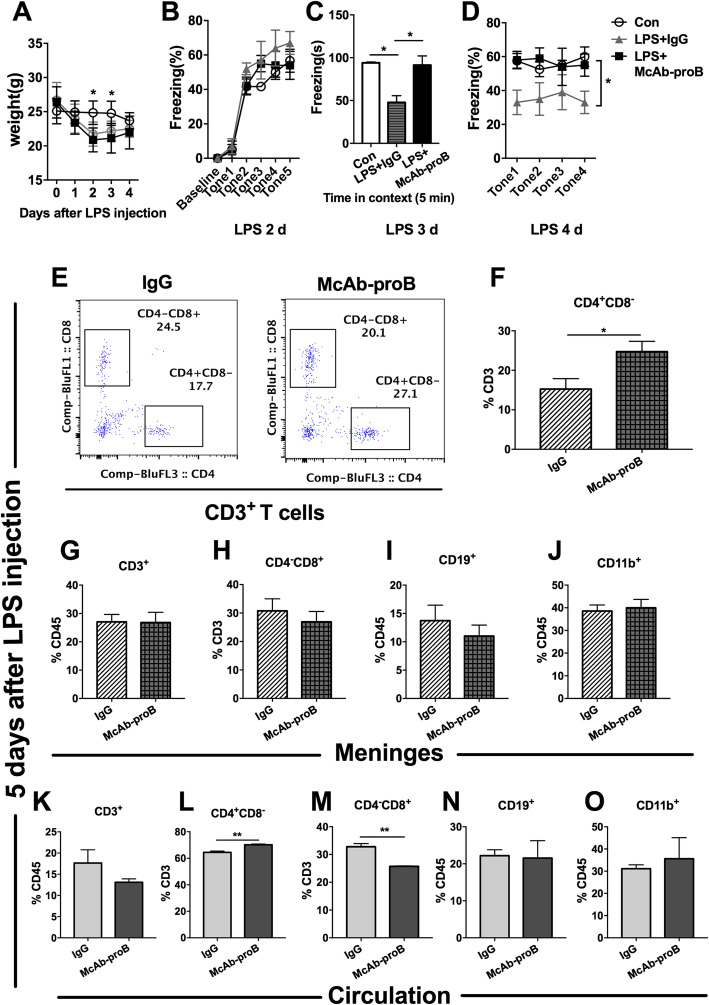Fig. 6.
Systemic blockade of proBDNF ameliorated cognitive dysfunction and restored meningeal and peripheral CD4+ T cell ratio in septic mice. Mice were i.p. injected with proBDNF 30 min before LPS (5 mg kg−1) injection. Fear conditioning testing was performed 1 day after LPS injection. Meninges and peripheral blood were harvested 5 days after LPS injection for flow cytometry. a McAb-proB did not influence the weight of mice or b fear conditioning acquiring. c,d McAb-proB greatly alleviated memory deficit induced by LPS injection in mice as indicated by the increased freezing time in (c) contextual and (d) cued fear conditioning tests in the McAb-proB group relative to the IgG control. n = 8 in each group. Data a, b, and d were analyzed by repeated measures ANOVA and followed by Bonferroni post hoc tests. Data c was analyzed by one-way ANOVA and followed by Tukey post hoc test, *P < 0.05. e–f Representative meningeal e single cell flow cytometry and f analysis of its results indicated that McAb-proB greatly increased the percentage of CD4+ T cells among CD3+ T cells than IgG control in LPS injected mice. g–j McAb-proB did not change the infiltration of immune cells such as g CD3+ T cells, h CD8+ T cells, i CD19+ B cells, and j CD11b+monocytes/macrophages in the meninges after LPS injection relative to IgG control. n = 4 in each group. k–o McAb-proB greatly reversed the decreased percentage of l CD4+ T cells and the increased percentage of m CD8+ T cells in CD3+ T cells, but had no effect on percentage of k CD3+ T cells, n CD19+ B cells, or o CD11b+ monocytes/macrophages in CD45+ cells in the peripheral blood of septic mice. n = 6 in each group. Data f–o were analyzed by unpaired T test, *P < 0.05, **P < 0.01, ****P < 0.0001. Data are presented as mean ± SEM. Con = saline injected control, McAb-proB = monoclonal anti-proBDNF antibody injection, IgG = isotype Igg injected control

